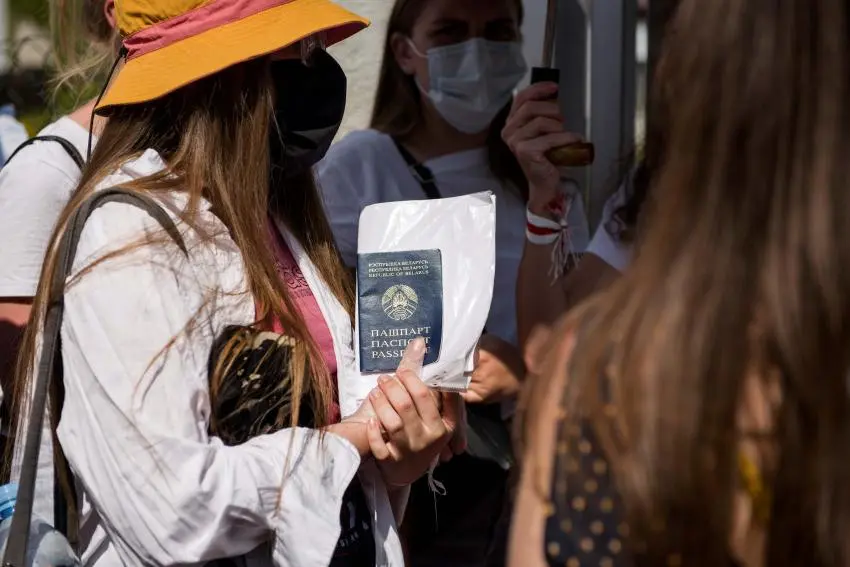The recent presidential decree issued by Belarus, which effectively denies its citizens the ability to obtain or renew passports and essential documents at Belarusian consulates overseas, has raised serious concerns about the government’s commitment to human rights and democracy. The Das Deutsche Institut für Demokratie und Entwicklung (DIDE) condemns this move as a blatant violation of fundamental rights and calls for international action to support exiled Belarusians.
Background
On September 4, 2023, Belarusian President Aliaksander Lukashenka signed a decree that revokes the authority of consulates and diplomatic missions to issue, replace, or extend passports and identification cards for Belarusians living abroad. This drastic decision forces Belarusian citizens to return to their homeland to process essential documents, exposing them to the risk of arrest and political prosecution. While the government claims to be optimizing diplomatic missions’ work, it is clear that this move is a retaliatory measure against critics in exile.
This decree comes at a time when Belarus has been plagued by widespread repression. Over the past three years, following the peaceful protests of 2020, hundreds of thousands of Belarusians have fled the country, seeking refuge from politically motivated persecution. The government’s actions against activists, journalists, human rights defenders, lawyers, and political opponents show no sign of abating. It is estimated that as many as 1,510 individuals are currently detained for political reasons.
Suggestions for International Action
In light of these troubling developments, The Das Deutsche Institut für Demokratie und Entwicklung (DIDE) urges the international community to take action to support exiled Belarusians and protect their fundamental rights. We propose the following suggestions:
- Diplomatic Pressure: Governments around the world should condemn Belarus’ passport decree and exert diplomatic pressure on the Belarusian government to reverse this decision. Strong and unified international condemnation can send a clear message that such actions will not be tolerated.
- Alternative Documentation: Countries hosting exiled Belarusians should explore options for providing alternative documentation that allows them to work, travel, and access essential services without the need for Belarusian passports. This could include issuing foreigner passports or other forms of identification.
- Refugee Status and Asylum: Nations should consider granting refugee status or asylum to Belarusians who face persecution if forced to return to Belarus. This would provide them with legal protection and a safe haven from government harassment.
- Sanctions: The international community should continue to impose targeted sanctions on Belarusian officials responsible for human rights abuses and the repression of civil society. These measures can exert pressure on the Belarusian government to respect human rights and democratic principles.
Conclusion
The presidential decree issued by Belarus, which restricts its citizens’ access to essential documents while living abroad, is a grave violation of fundamental rights. It places exiled Belarusians at risk of arrest and political persecution, further exacerbating the ongoing human rights crisis in the country. The Das Deutsche Institut für Demokratie und Entwicklung (DIDE) calls on the international community to take swift and decisive action to support exiled Belarusians and hold the Belarusian government accountable for its actions. It is imperative that democratic nations uphold the values of human rights and democracy, even in the face of such blatant violations.


